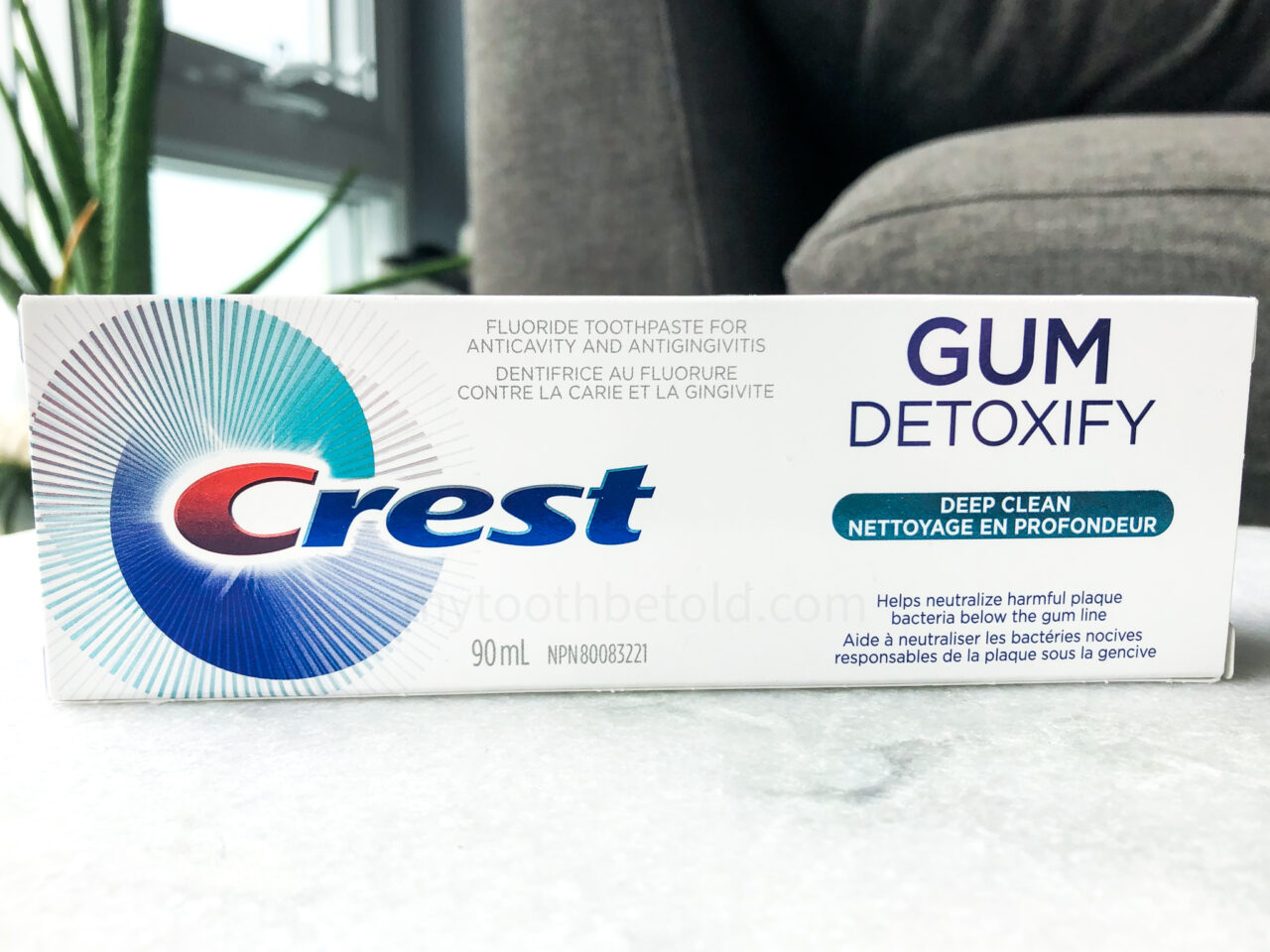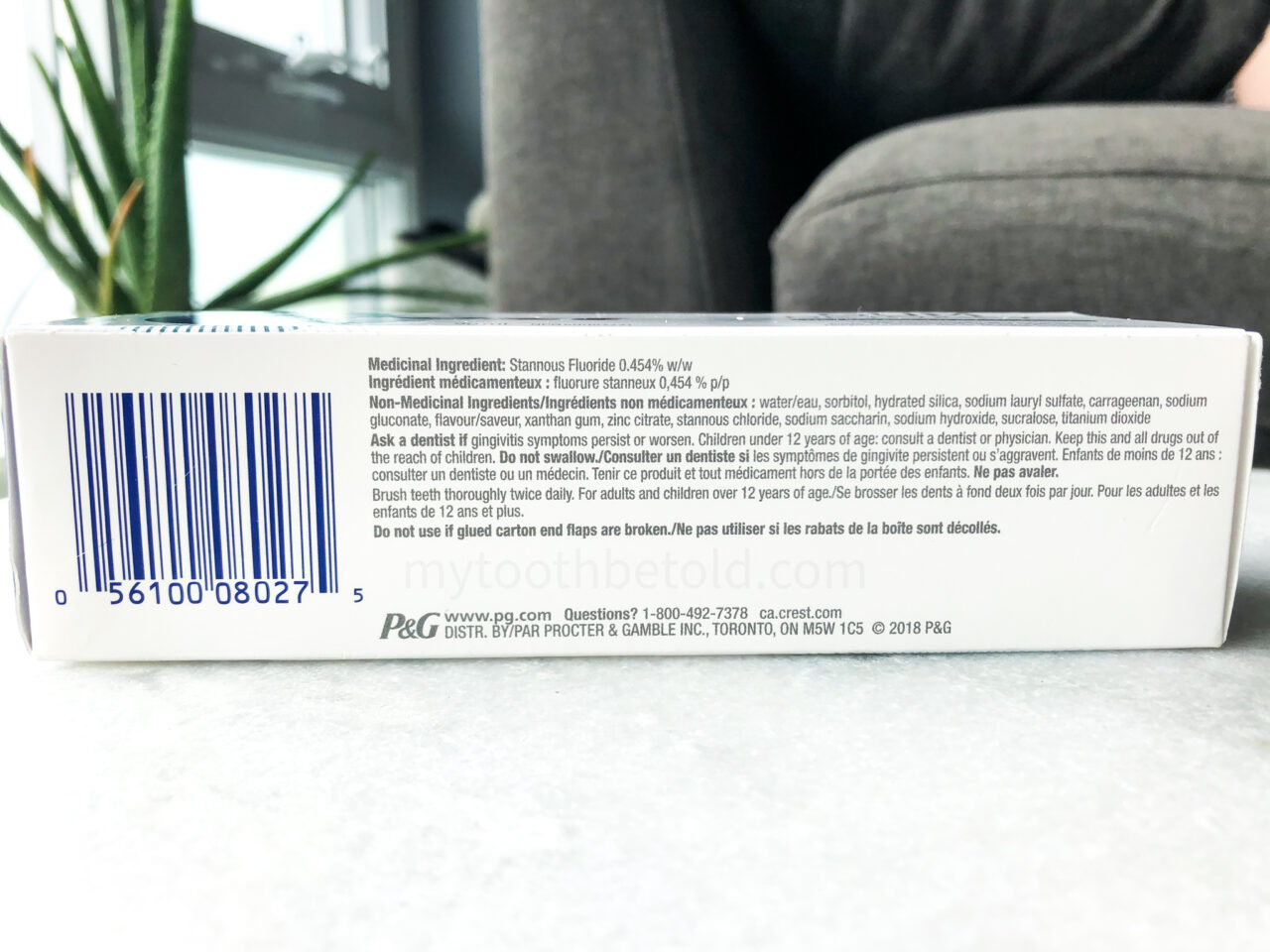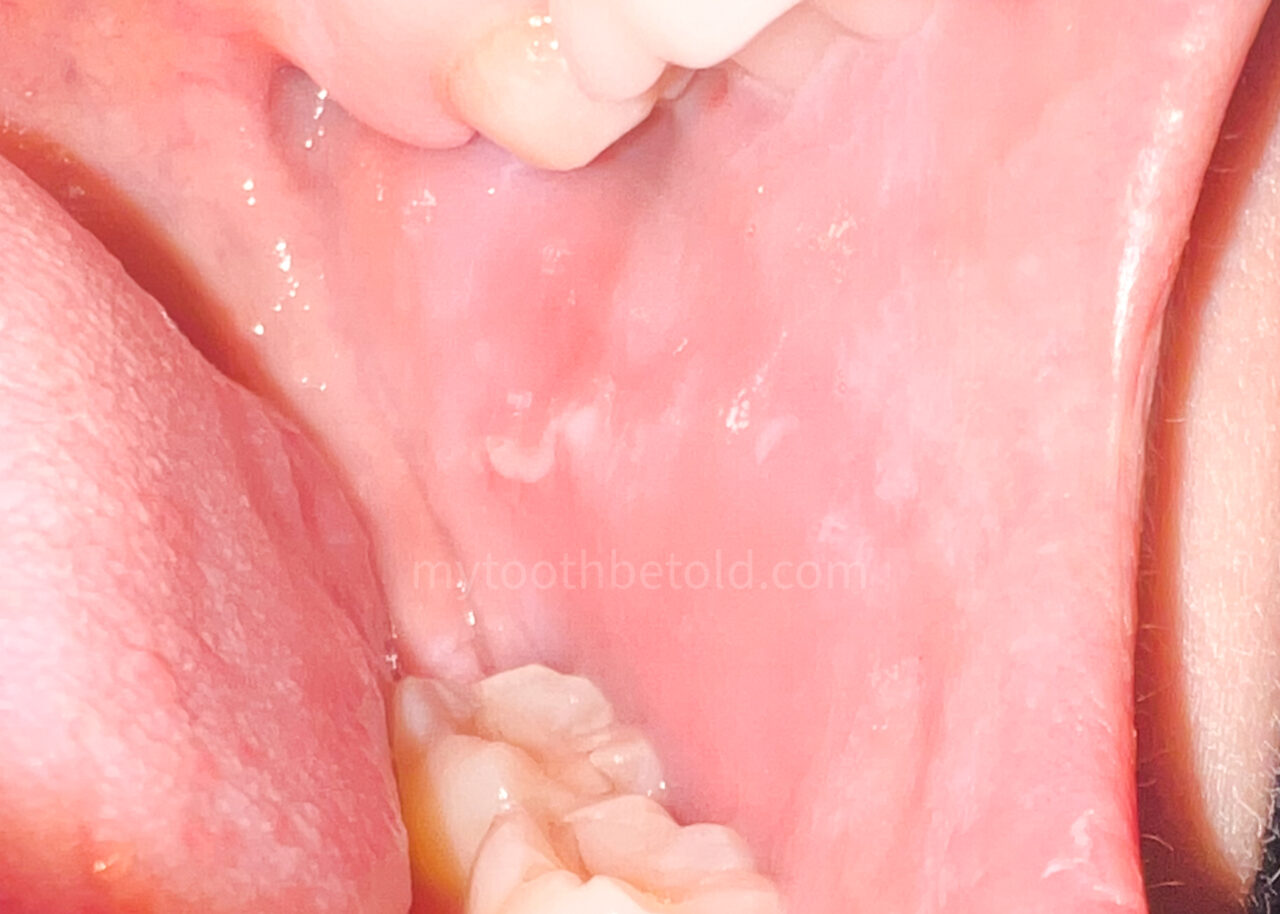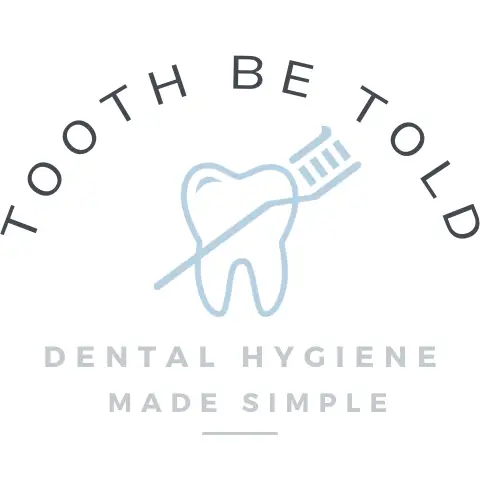
As a dental hygienist, I discuss different phenomena that occur in the mouth, including tissue peeling. Also called oral epitheliolysis, it can be described as tissue peeling in your mouth, generally on the inside of the cheeks. It can happen unexpectedly and make us start to worry about why it’s happening!
Tissues normally shed, but certain ingredients that are found in dental products can speed up this process. This can cause a whitish layer to come off. It can be caused by chemical trauma to the oral tissues by sodium lauryl sulphate and sodium polyphosphates as well as medical conditions, food/drink or physical trauma.
as well as medical conditions, food/drink or physical trauma.
In this post, I go over what SLS is, whether it is safe to use, other causes other than SLS that can cause peeling tissue, and what I recommend to my patients.
What is SLS (Sodium Lauryl Sulphate), and why it’s in toothpaste?
Sodium lauryl sulphate is a surfactant that is put in some kinds of toothpaste and mouthwashes to make them foam. This foaming action gives us the false sense that it is “cleaning more”. Source
You can probably think of many commercials advertising their products, “deep action foam” or “foaming power” to clean better.
However, this doesn’t actually work and doesn’t have any effect on how well the toothpaste performs.
There is no evidence that SLS improves oral health. In this study , SLS and SLS-free toothpaste performed the EXACT same for reducing plaque, gingivitis, and gingival abrasion.
, SLS and SLS-free toothpaste performed the EXACT same for reducing plaque, gingivitis, and gingival abrasion.
In my opinion… why would you use a product when you know it doesn’t improve your oral health but has been known to have adverse effects?
Personally, I do not use SLS-containing products, but the choice is up to you if you want to use them. The below information can help you make that decision.

Is SLS safe to use in toothpaste?
SLS is safe to use at lower concentrations.
To go further under the microscope, (literally) the cells start to change when they have repeated exposure to sodium lauryl sulphate.
This study went under the microscope and exposed tissue to a low concentration of SLS (less than 0.15%), and at this concentration, the results were;
went under the microscope and exposed tissue to a low concentration of SLS (less than 0.15%), and at this concentration, the results were;
- The cells started to thicken
- The cells started to proliferate more (the number increased more rapidly) and can cause the tissue to slough.
- Also, the heightened expression of E-cadherin was observed.
This is the body’s protective response but has no correlation to tissue destruction or illness.
The same study exposed the tissue to a concentration above 0.15%, and the results were;
- The thickness of cells decreased
- Cells did not proliferate as quickly
- And E-cadherin was decreased.
E-Cadherin is on the outside of a cell which allows it to bridge another cell, keeping them together.
These characteristics are more destructive and have been linked to oral cancer formation and metastasis .
.
Another thing to note is that even though it has been deemed safe to use at low concentrations, there is evidence
that it can cause dry mouth, ulcerations and mouth tenderness.
A dry mouth can lead to a more acidic mouth, which increases the effects of the bacteria on the mouth.
Every cause has an effect, and sometimes we forget to look at the bigger picture rather than just through the microscope.
The dose is the poison; how much is too much SLS
The dose makes all the difference with anything we consume.
A dentist I had as a professor once said: “the dose is the poison,” and that stuck with me.
Take water, for example, it’s essential to life, but too much can harm our bodies.
This extends to the ingredients in our toothpaste, with people being more sensitive than others.
Too much SLS will be dependent on the consumer, but reducing the amount used as much as possible should be a priority. If you are using toothpaste that contains SLS, consider switching if the tissue in your mouth begins to peel.
Everyone reacts differently to amounts of SLS
Everyone is different, and your biological makeup can make you more prone to adverse reactions to such ingredients as SLS.
This stu dy conducted by the British Dental Journal, outlines a case where a lady was using a toothpaste with SLS, which was causing her cheek tissue to peel off. And this peeling was discontinued after switching to an SLS-free toothpaste.
dy conducted by the British Dental Journal, outlines a case where a lady was using a toothpaste with SLS, which was causing her cheek tissue to peel off. And this peeling was discontinued after switching to an SLS-free toothpaste.
Some people will have no effects from using SLS-containing toothpaste, whereas others will.
Use your judgment and discuss it with your dental professional.
Other causes of tissue peeling in the mouth
Medications, medical conditions and even radiation therapy could also cause tissue sloughing.
Over 500 medications cause dry mouth, which can contribute to tissue peeling in the mouth.
When you have diminished saliva, it can really have a negative impact on your oral health.
Saliva is a natural lubricant that has antimicrobial and remineralization properties that protect every surface of your mouth.
Because of this, when you have a dry mouth, the tissue because more susceptible to being irritated by things you consume or products used in the mouth, for example, toothpaste.
Again SLS can cause dry mouth, so if you already have a dry mouth…. do not use SLS-containing toothpaste.
Toothpaste/Mouthwash sensitivities
As well, some people don’t like mint toothpaste, so the next popular flavour is cinnamon.
A lot of people have an allergy to cinnamon, and they may not even know it. This allergy can cause tissue sloughing as well.
If you have recently started using a new toothpaste and the sloughing occurs, just switch back to your old one and see if it resolves.
Read Now: Marketing Method Toothpaste Companies Don’t Want You to Know
Cheek and lip biting
This is my worst habit, if I’m nervous, anxious or have a lot on my mind, I tend to take it out on my inner cheeks and lips. And by the time I’ve caught myself, it’s too late. I have really tried to be conscious of this because it is not a good habit to get into.
After a few days of biting the tissues, the tissue starts to slough off, revealing fresh, healthy unbitten tissue underneath.
It’s important to try and stop this habit because traumatizing the tissue over and over again can cause damage, pain and discomfort.
I go through periods of time where I am really good at stopping. I am aware of what makes me do it, so I try to do other things to distract myself, like chewing xylitol gum or mentally taking note of what I’m doing and stopping.
It’s like a nail-biting habit; very hard to break!
Clenching and grinding
Clenching and grinding can cause linea alba, which looks like a white raised line that stretches across the inside of the cheeks.

The line is adjacent to where your teeth bite together (the bite plane) and can start at the back of the mouth and stretch to the corner of the mouth.
If you clench or grind your teeth, you should be wearing a nightguard when you sleep at night. The nightguard will protect your teeth and cheeks.
The best nightguards are custom-made by your dentist, but if you don’t want to do that, then the next best one on the market is this one . You can read why this nightguard is the best non-custom-made one at the end of this post.
. You can read why this nightguard is the best non-custom-made one at the end of this post.
Acidic foods/drinks
It could even be a mild allergy, but tissue sloughing can occur after eating a lot of pineapples, kiwi or other highly acidic foods.
These foods/drinks can irritate the tissue, causing your body to go into protective mode and increase the proliferation of the cells – which in turn causes sloughing.
How to remove the peeling tissue from the mouth
Take a warm moist washcloth and wrap it around your pointer finger. Gently rub up and down along the inside of your cheek or wherever the peeling is occurring. You may want to take out the cloth and rinse it under warm water to remove the tissue from the cloth.
Try not to scratch it off with your fingernails or bite it because it could cause more damage.
Switch to an SLS-free product to reduce tissue peeling
My favourite toothpaste is Sensodyne, and most of them do not have sodium lauryl sulphate in them. I personally use ProNamel. However, you may benefit from one of the other versions.


Read Now: What Sensitivity Toothpaste Works the Best?
One thing to be very aware of is what brand you are purchasing from. I find that some smaller/less scientific-based companies will jump on the bandwagon of the “what product is bad for you now”.
This can be harmful to your health because they will take out the “bad” ingredient but replace it with one that hasn’t been scientifically researched or approved to be safe for use.
What to use instead of mouthwash to prevent tissue peeling
The tried and trusted way of cleansing your mouth is using a saltwater rinse.
Adding salt water rinses to your oral health routine (brushing and flossing) has been proven to reduce many different pathogenic (bad) bacteria in the mouth, resulting in preventing oral diseases.
You can read more about it in this study.
study.
Saltwater rinses are only effective if the concentration of salt is at least a MIC (minimum inhibitory concentration) of 0.7 M.
Recipe for salt water rinse; safe and effective mouth rinse
At least ½ teaspoon to every 1 cup of water. This will give you a 0.9 M concentration which is more than enough to inhibit the bad bacteria in your mouth.
- Warm 1 cup of water in the microwave. You do not want it hot!
- Stir in and dissolve at least ½ a teaspoon of table salt.
- Once dissolved completely, you can then start rinsing.
- Take a mouthful of the salt water, gently swish it around your mouth for at least 5-10 seconds, and spit it out.
- Repeat until the whole cup of saltwater is used.
You will want to do a saltwater rinse at least 1 x a day for 1 week if your aim is healing, but if you are rinsing with it to replace mouthwash, you don’t want to do it too often, even just 1 x a week will do.
Remember, it’s the mechanical removal of the plaque on your teeth that will improve your oral health the most.
Mouth rinses are not a replacement for flossing and brushing.
Discuss peeling tissue with your dental professional
Tissue sloughing is not something you want to ignore.
Please mention it to your dentist/dental professional next time you go, or if it does not go away within 2 weeks of switching up your routine.
If it goes away after you’ve stopped using a product such as mouthwash, it is probably from that.
However, it could be something else.
To rule it out, you will need to have an in-person exam with your dental professional.
Another reason why it is so important for you to discuss this with your dental professional is that the sloughing can come and go and could be indicative of another medical condition.
If it is from clenching and grinding, then you should be wearing a nightguard to protect the soft tissues of your mouth, not to mention your teeth.
Have a great day!
Holly 🙂

